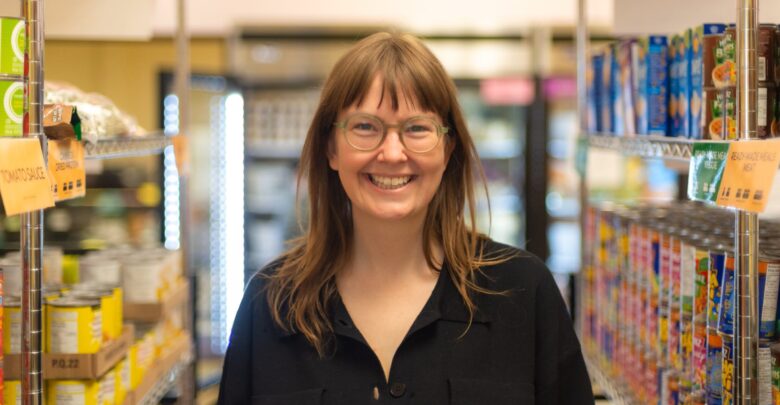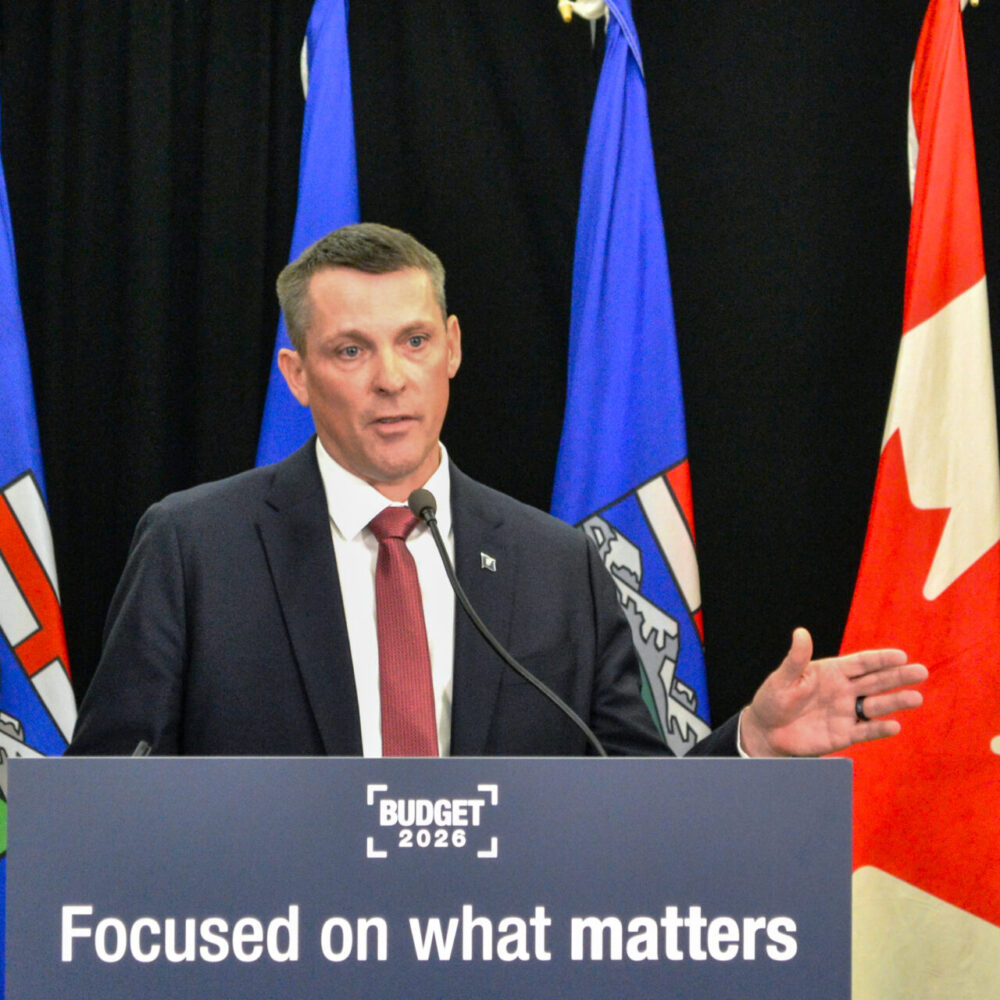Erin O’Neil departs from Campus Food Bank as executive director
O'Neil reflects on her time at the CFB, the increased demand for food security services on campus, and the CFB's future.
 Supplied
SuppliedFebruary 14 was Erin O’Neil’s last day as executive director of the Campus Food Bank (CFB) at the University of Alberta. She started the role exactly three years prior to her departure, during “a period of extreme change at the CFB.”
“Coming in just as the lockdowns were ending and grocery inflation was starting to take off, the last three years have [seen] no consistency,” O’Neil said. “I think maybe that’s part of why I burnt out so quickly.”
When O’Neil first started in 2022, she said the CFB had around 200 clients a month and was spending around $250,000 a year. According to the CFB’s 2021–22 annual report, hamper distribution went up 106 per cent from the previous year. Individuals served went up by 73 per cent.
The increase in demand continued throughout O’Neil’s term, and the CFB ended the 2023–24 academic year in a cash deficit.
“Now we’re pretty even at 1,100 visits a month, and our budget this year is about $700,000,” O’Neil said. “It’s been a tough couple of years, but this organization is so full of people who care about students and making sure that students are fed.”
O’Neil reflects on switch to shopping model and client engagement
While the CFB has seen various changes under O’Neil’s leadership, she was most proud of switching from a hamper model to a shopping model for clients.
“It created more of a dignified experience for clients,” O’Neil explained. “But it also was, in retrospect, the only way we were able to manage the last couple of years.” She added that serving 1,100 hampers would’ve been unfeasible with the CFB’s current space and volunteer team.
O’Neil is also proud of the CFB’s increased client engagement. The CFB has done three annual client surveys so far, and has “been able to implement feedback really quickly.”
Additionally, when O’Neil started her role, the CFB had two full-time staff and two student staff. Now it has four full-time staff and two student staff, including a student client engagement co-ordinator. Volunteers engage in strategic work as well, O’Neil said.
“Being able to grow by making sure that as many voices as possible are represented in our decision-making is the key to what I’m most proud of.”
O’Neil moves to CKUA Radio, hopes to stay involved with food security work
O’Neil is leaving the CFB for CKUA Radio, where she’ll work as a Fund Development Manager. She grew up listening to the CKUA, and is “a big believer in the power of art and music to bring community together.”
She said that she decided to leave the CFB because of the impact that it had on her health.
“This job has broken me. I decided that my health and mental health were suffering to the point where I just needed to start looking elsewhere,” O’Neil said. “I don’t want to leave saying that I’m completely broken and have no optimism. The organization itself is really alive and vital.”
O’Neil said that the CFB’s financial situation is different from most campus food banks that receive operational funding from their institution.
“The location of our organization as an independent operation, in a campus bureaucracy with many of its own players, makes the strategy around growing and responding to clients a little bit murkier.” She added that the CFB has a cash-flow issue, where “if we’re not fundraising enough, we can’t make payroll sometimes.”
“The pressure really got to me,” she said. “I think the burnout came from the fact that social services are severely underfunded. But also that existential piece that we can’t [systematically] change anything as an individual organization. What we can do is make sure that everybody who walks through here leaves feeling like they’ve been seen and heard and supported.”
O’Neil said she hopes to stay involved with food security work as a volunteer. She’ll also be working with a new non-profit focused on national campus food security advocacy.
“How do we harness all of that passion and support into systemic change?” O’Neil asks
Over the coming months, the CFB will announce new changes that will allow for a focus on “growing from a solid foundation,” O’Neil said. However, O’Neil hopes to see the CFB move away from food banking, which is “an antiquated way of delivering social services.” Instead, she hopes to see the CFB become a community centre.
“A community centre where … clients are welcome in any time, and there’s actual food that can be cooked. And we have more community meals and celebrations of cultures.”
Ultimately, O’Neil thinks that there is a lot of potential for change with the people that support the CFB.
“The food bank is not just me. It is thousands of people who spend at least a couple hours a month thinking about us. And contributing their time, money, and creativity to make sure that this place stays sustainable.”
“The challenge — now that we’ve mostly adjusted to the new normal — is, how do we harness all of that passion and support into systemic change?”
—With files from Peris Jones.




